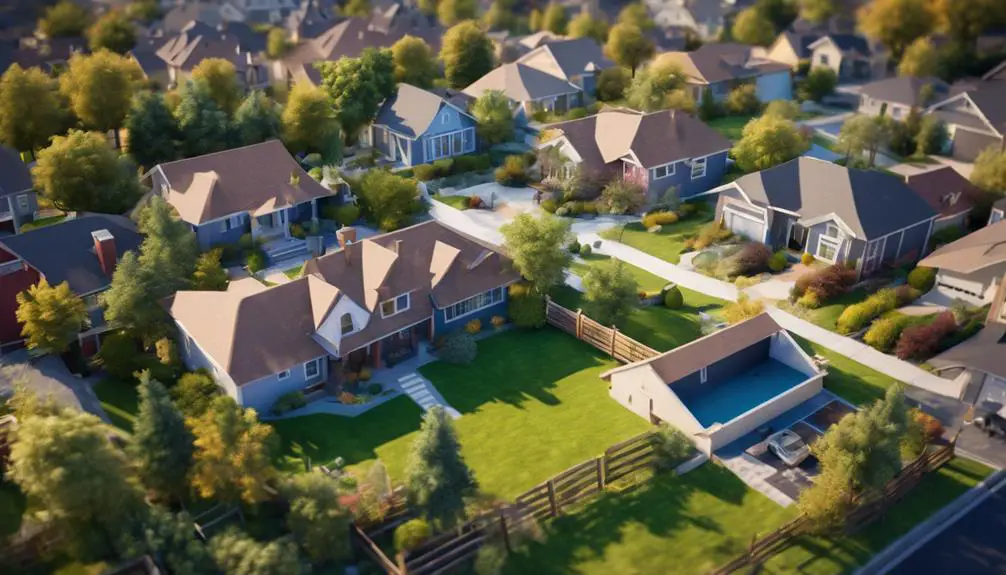You can’t just fly a drone over private property without considering the laws and the rights of homeowners. Trespassing laws may apply, and many states have specific regulations that restrict drone flights over residential areas. It’s important to respect people’s privacy and avoid capturing footage without their consent. Keeping a safe distance from homes can help you avoid potential conflicts or legal issues. Always check local laws before taking off. If you’re curious about how to operate your drone responsibly while staying informed, there’s plenty more to discover on this topic!
Overview of Drone Regulations
When flying a drone, it is crucial to understand the regulations that govern where and how you can operate over private property. You might feel the urge to explore open skies and capture stunning visuals, but remember that your freedom has boundaries. Different states and localities have specific laws regarding drone usage, especially over privately owned land. Trespassing laws may apply, and flying too close to someone’s home can lead to conflicts. Always respect the privacy of others, as it fosters a more harmonious relationship between drone enthusiasts and property owners. Staying informed about these regulations not only keeps you within legal limits but also empowers you to enjoy your drone experience without unnecessary interruptions. Freedom lies in understanding the rules that protect it.
Federal Aviation Administration Guidelines
The Federal Aviation Administration (FAA) establishes essential guidelines that every drone pilot must follow to guarantee safe and responsible flying. You’ve got the freedom to explore the skies, but you need to know the rules. First, always keep your drone within your line of sight. Flying in controlled airspace requires permission, so check those airspace maps before taking off. Don’t fly higher than 400 feet and steer clear of crowded areas. Respecting privacy is significant; just because you can fly over someone’s property doesn’t mean you should. Always be aware of your surroundings and avoid flying near airports. By adhering to these guidelines, you can enjoy the thrill of flying while ensuring the safety and peace of mind of others.
State Laws on Drone Use
State laws on drone use can vary greatly, so it is crucial to stay updated on your local regulations before taking flight. Some states have specific laws regarding where you can fly, how high you can go, and what you can capture with your drone. You might find restrictions in urban areas or near sensitive locations like airports and military bases. Additionally, some states require you to register your drone or obtain permits for commercial use. Ignoring these laws can lead to hefty fines or legal trouble. Embracing the freedom of flying your drone means being informed and responsible. So, before you take to the skies, make sure you know the rules in your area to fully enjoy your flying experience.
Homeowner Rights and Protections
Homeowners have specific rights and protections that can impact how drones are used over their property. Understanding these rights empowers you to safeguard your space and maintain your freedom. Here are some key points to reflect upon:
- You have the right to enjoy your property without unwanted intrusion.
- Drones can’t capture images of you or your home without consent.
Potential Legal Consequences
Flying a drone over private property can lead to serious legal repercussions if you invade someone’s privacy or violate local regulations. You might think you’re free to explore the skies, but many states have laws addressing drone use, including restrictions on flying over homes. If you capture footage without consent, you could face harassment or invasion of privacy claims. Additionally, trespassing laws may apply if your drone crosses boundaries into someone’s airspace. Local ordinances can also impose fines or penalties for unauthorized drone flights. So, while you crave that freedom, it’s essential to be aware of the potential legal consequences. It’s better to stay informed and respect others’ rights to avoid unnecessary troubles down the line.
Best Practices for Drone Operators
Respecting privacy and adhering to regulations are essential best practices for drone operators to ascertain a responsible and enjoyable flying experience. By following these guidelines, you can ascertain you’re flying freely while being considerate of others.
- Always check local laws and regulations before flying.
- Respect people’s privacy; avoid flying over private properties without permission.
Navigating Neighborly Relations
Maneuvering relationships with neighbors can be tricky when it comes to drone usage, especially if you’re inadvertently invading their privacy. To keep the peace, consider giving your neighbors a heads-up about your drone flying plans. Open communication fosters trust and shows you respect their space. If they express concerns, listen and be willing to adjust your flight paths. Also, be mindful of noise and the potential for distractions when flying in residential areas. You want to enjoy your freedom without stepping on toes. Remember, a little courtesy goes a long way. When neighbors feel included and respected, it makes for a harmonious environment where everyone can enjoy their property—drone enthusiasts and non-drone enthusiasts alike.

